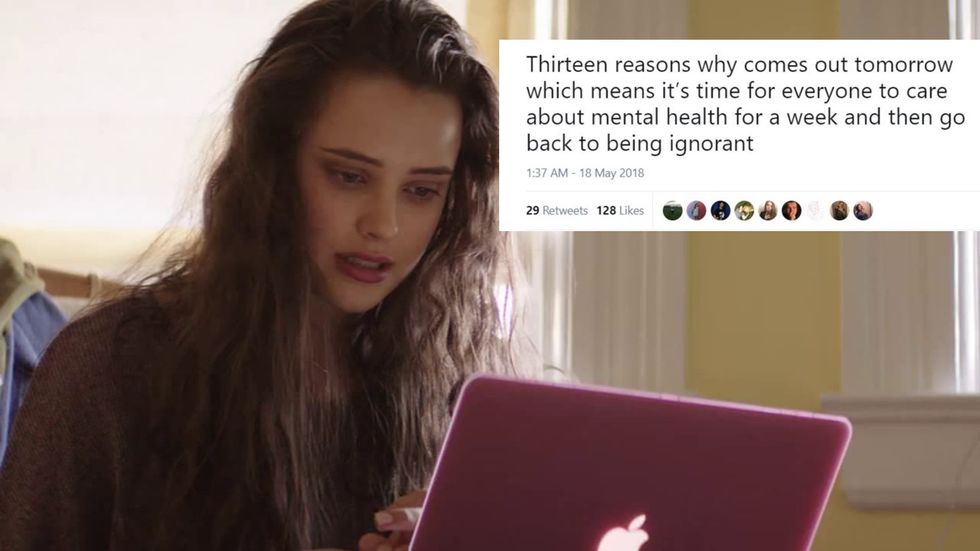When Season 2 of “13 Reasons Why” dropped on Netflix last week, I was caught up in a massive storm of angry tweets, long Facebook posts and passive aggressive Instagram captions by pretty much everyone I know either rebuking or praising the controversial Netflix Original series.
The show caught the social media world by storm last year when Netflix adapted the book “13 Reasons Why” into an original series, at first because of the massive popularity of the show. The show quickly became Netflix’s most tweeted about show of 2017. Mainstream news sources even wrote about the show and hailed it as a modern feminist think piece and a series that opens the door for the much-needed discussion about mental illness.
Except, for millions of Americans and viewers around the world who have lived with mental illness and suicidal ideation and for people who have lost loved ones to suicide, it is easy to see how disgustingly the show deals with several heavy concepts.
It glorified Hannah’s death, actually showing it on screen. The National Association of School Psychologists specifically warns teens against watching the show because showing suicide on-screen can dramatically increase the risk of copycat suicides. The show told millions of impressionable young teens watching the show that self-harm is an acceptable way of coping with suicide. It even left the people who have been left alone, confused and saddened after losing a loved one to suicide feel that they might have been the cause of their loved one’s death.
The supporters of the show are constituted mostly of white, upper-middle-class teenage girls who have never struggled with mental illness or lost someone to suicide and use the show to make themselves feel better about the fact that they’ve never dealt with any major hardship in their life.
Caring about a fictional character who’s already dead is a lot easier than recognizing depression and mental illness in the real world and the destructive ways in which it can manifest itself. Not to mention the sappy love story interwoven throughout the show that hits pretty much all the red flags for an abusive, manipulative relationship being lauded as a cute teen fling.
The support for this show comes from a culture where people’s lives are nothing more than entertainment. We scroll through Twitter or Facebook and we see stories of black kids getting murdered or school shootings racking up death tolls in the dozens. We feel sad for a while, and then we scroll on past. There’s nothing we can really do in the short term to make a difference, so we justify our inaction to ourselves by patting ourselves on the back any time we do feel sad. Because as long as we feel sad about these horrors that means we care, and as long as we care we’re doing all we can, right?
Wrong. “Waiting on the World to Change” was a satire, not an anthem, and if we keep ignoring the ways in which we can actually affect change in the world in exchange for feeling comfortable on the sidelines with pom-poms and catchy chants and BuzzFeed articles, then society will continue crumbling before our eyes.
Watching “13 Reasons Why” even though millions of people who have actually suffered through the horrors depicted in the show have told you it’s an atrocity of the highest caliber means that you don’t actually care — you just want people to think you do. Mental illness is an issue that we can’t tackle from the sidelines and means more than just a dumb TV show written for people who want to feel good about themselves.
We live in a culture now where it is cool to seem like we care and it’s cool to be “woke,” but even among people who do criticize “13 Reasons Why” I still see the same problems. We support what we’re told to support and criticize what we’re told to criticize, but at the end of the day, we’re still just spending our whole day on social media having heated debates about entertainment instead of doing anything to fix the underlying problems.
If you want to actually make the world a better place instead of impressing your followers, you’re going to have to get uncomfortable. You can’t fix the world from your living room couch.
















